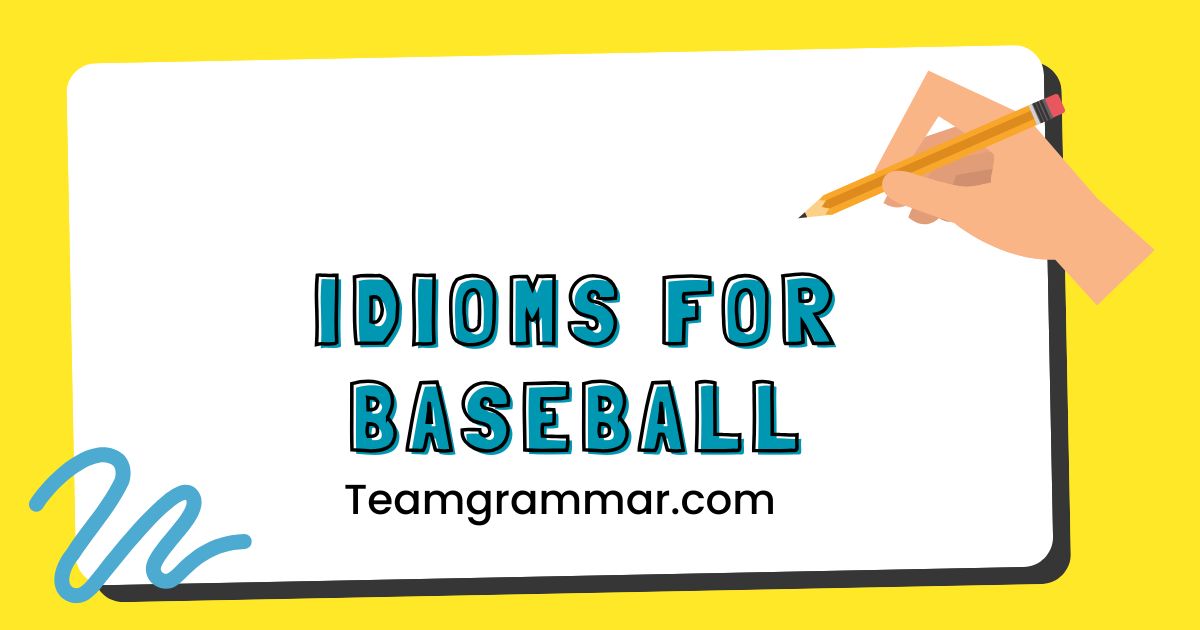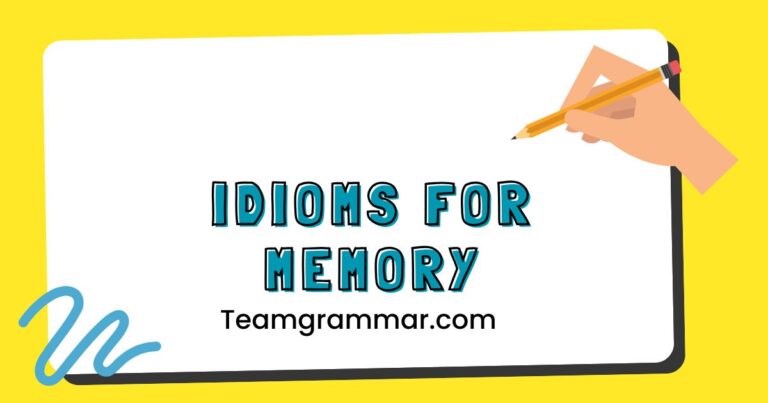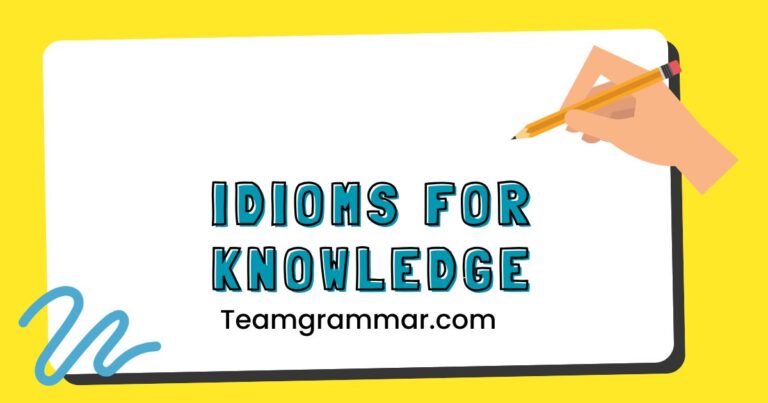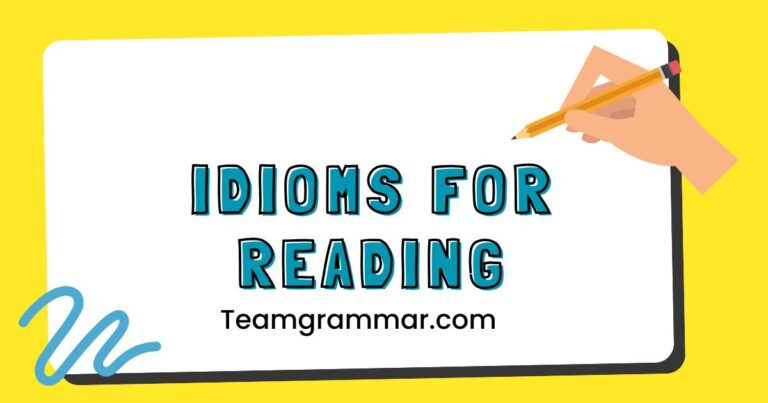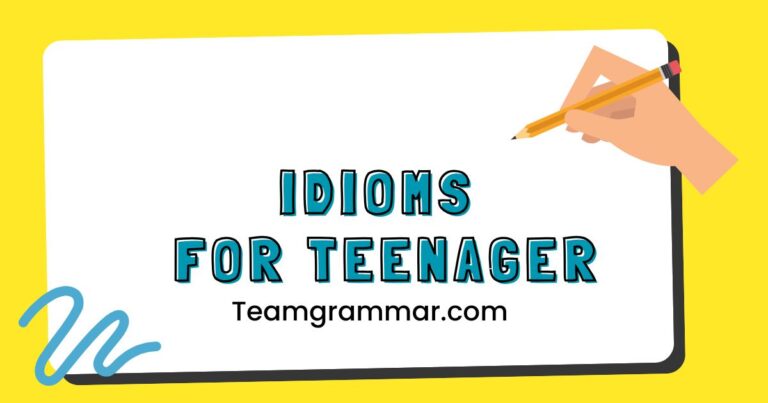31 Baseball Idioms: Mastering English Through America’s Pastime
Understanding idioms is crucial for mastering English, as they add color and nuance to everyday conversations. Baseball, a beloved sport in America, has contributed a wealth of idioms to the English language.
These idioms are frequently used outside of the baseball context, enriching communication and providing a unique cultural perspective. This article explores common baseball idioms, their meanings, origins, and how to use them correctly.
Whether you’re an English language learner, a baseball fan, or simply looking to enhance your vocabulary, this guide will help you understand and confidently use baseball idioms in your daily interactions.
Table of Contents
- Introduction
- Definition of Baseball Idioms
- Structural Breakdown
- Types and Categories of Baseball Idioms
- Examples of Baseball Idioms
- Usage Rules for Baseball Idioms
- Common Mistakes with Baseball Idioms
- Practice Exercises
- Advanced Topics: The History and Evolution of Baseball Idioms
- FAQ: Frequently Asked Questions
- Conclusion
Definition of Baseball Idioms
Baseball idioms are phrases or expressions whose meanings cannot be understood from the ordinary meanings of the words they contain. These idioms have their roots in the sport of baseball but are now widely used in everyday language to convey specific ideas and emotions.
They function as colorful and concise ways to express complex concepts, adding depth and personality to communication.
Idiomsare a type of figurative language that relies on a shared cultural understanding. In the context of baseball, these idioms often draw parallels between the game’s strategies, successes, and failures, and similar situations in life or business.
For instance, “to strike out” in baseball means to fail to get a hit; idiomatically, it means to fail at any endeavor. The effectiveness of idioms lies in their ability to evoke vivid imagery and convey meaning in a memorable way.
Baseball idioms can be classified based on their origin within the game’s various aspects, such as batting, pitching, fielding, and general gameplay. Understanding these classifications can help learners grasp the nuances of each idiom and use them appropriately.
Baseball idioms have permeated various aspects of American culture, appearing frequently in business, politics, and general conversation. Recognizing and understanding these idioms is essential for effective communication and cultural literacy.
Structural Breakdown
The structure of baseball idioms can vary, but they often follow common patterns found in idiomatic expressions. Many idioms are verb-based phrases, such as “step up to the plate,” where “step up” is the verb and “to the plate” provides context related to baseball.
Other idioms may be noun phrases, such as “out of left field,” which describes something unexpected or strange. The structure often contributes to the idiom’s figurative meaning, drawing on the imagery associated with the specific baseball action or situation.
Understanding the literal components of an idiom can sometimes provide clues to its figurative meaning, although this is not always the case. For example, “touch base” literally refers to touching a base on the baseball field, but idiomatically it means to make contact or check in with someone.
The structural elements of an idiom, including the choice of words and their arrangement, contribute to its overall impact and memorability. The grammatical structure of an idiom is usually fixed, meaning that the words cannot be changed or reordered without altering or losing the idiom’s meaning.
For example, saying “step to the plate up” does not convey the same meaning as “step up to the plate.”
Here’s a breakdown of common structural patterns:
- Verb + Prepositional Phrase: Examples include “step up to the plate,” “throw someone a curveball,” and “touch base.”
- Noun Phrase: Examples include “ballpark figure,” “out of left field,” and “a whole new ball game.”
- Phrasal Verbs: Some idioms function as phrasal verbs, where the verb and preposition together create a new meaning, such as “strike out.”
Types and Categories of Baseball Idioms
Baseball idioms can be categorized based on the specific aspect of the game they relate to. This classification helps in understanding the original context of the idiom and how it has been adapted for broader use.
Batting-Related Idioms
These idioms originate from the act of batting and reflect concepts such as opportunity, success, and failure. They are commonly used to describe situations where someone is facing a challenge or trying to achieve a goal.
Examples include “step up to the plate,” “hit a home run,” and “strike out.”
Pitching-Related Idioms
These idioms come from the act of pitching and often involve deception, strategy, or dealing with unexpected challenges. They are used to describe situations where someone is trying to influence or mislead others.
Examples include “throw someone a curveball,” “ballpark figure,” and “right off the bat.”
Fielding-Related Idioms
These idioms are derived from the act of fielding and reflect concepts such as teamwork, defense, and preventing errors. They are used to describe situations where someone is protecting something or trying to avoid mistakes.
Examples include “out in left field” and “cover all the bases.”
General Baseball Idioms
These idioms encompass broader aspects of the game and reflect concepts such as change, progress, and overall strategy. They are used to describe general situations or changes in circumstances.
Examples include “a whole new ball game,” “play ball,” and “three strikes, you’re out.”
Examples of Baseball Idioms
Understanding baseball idioms requires seeing them in context. The following sections provide examples of each category, illustrating how these idioms are used in sentences.
Batting-Related Examples
The following table provides examples of batting-related idioms, their meanings, and example sentences to illustrate their usage.
| Idiom | Meaning | Example Sentence |
|---|---|---|
| Step up to the plate | Take responsibility or face a challenge | It’s time for you to step up to the plate and lead the project. |
| Hit a home run | Achieve great success | The company hit a home run with their new product launch. |
| Strike out | Fail | He struck out in his attempt to get a promotion. |
| Swing for the fences | To try to achieve something big, even if it’s risky | We decided to swing for the fences and invest in a new technology. |
| Come to bat for someone | To support or defend someone | I will always come to bat for my friends when they need help. |
| Get on base | Achieve a small success or make progress | Even though we didn’t win, we got on base with some key contacts. |
| Two strikes against you | Being in a difficult or precarious situation | With two failed projects, he already had two strikes against him. |
| Batting a thousand | Being perfectly successful | She’s been batting a thousand with her sales pitches lately. |
| Clean up hitter | Someone who is expected to perform well and bring success | As the clean-up hitter of the team, he always delivers in crucial moments. |
| Take a swing at it | To try something | I’m not sure how to fix it, but I’ll take a swing at it. |
| Right off the bat | Immediately | Right off the bat, I knew this was going to be a successful project. |
| Lead off hitter | The first person in a sequence, often setting the stage for others | As the lead-off hitter, she always sets a positive tone for the meeting. |
| He’s no hitter | He’s not very good at what he does | He’s no hitter when it comes to coding. |
| Full count | A situation that is at its most intense or critical point | The negotiations were at a full count, with both sides unwilling to compromise. |
| Knock it out of the park | To do something exceptionally well | She knocked it out of the park with her presentation. |
| Bunt | To sacrifice one’s own advantage for the benefit of the team or overall goal | He decided to bunt his personal ambition for the sake of the company’s success. |
| On deck | Next in line or ready to go | I’m on deck to present the next section of the report. |
| A single | A modest but successful achievement | While it wasn’t a home run, securing that contract was a solid single for the company. |
| Foul ball | Something that goes wrong or is off-target | His comment was a foul ball and offended several people in the meeting. |
| Get a hit | To be successful at something | He really got a hit with his new marketing strategy. |
| Hit for the cycle | To achieve a varied set of successes or accomplishments | He hit for the cycle by winning awards in sales, leadership, and innovation. |
| Can of corn | An easily catchable fly ball; something easily accomplished | That task was a can of corn for her; she finished it in minutes. |
| Base hit | A success | Landing that client was a major base hit for our company. |
| Ground rule double | An unexpected reward or advantage | The unexpected tax break was a ground rule double for the small business. |
Pitching-Related Examples
The following table provides examples of pitching-related idioms, their meanings, and example sentences to illustrate their usage.
| Idiom | Meaning | Example Sentence |
|---|---|---|
| Throw someone a curveball | Surprise someone with something unexpected | The interviewer threw me a curveball with a question about my weaknesses. |
| Ballpark figure | An approximate or rough estimate | I can’t give you an exact number, but a ballpark figure would be around $10,000. |
| Right off the bat | Immediately | Right off the bat, I knew this was going to be a successful project. |
| Hardball | Aggressive or uncompromising tactics | The negotiations turned to hardball when they refused to compromise. |
| Below the belt | Unfair or unsportsmanlike | His personal attacks were below the belt and completely unnecessary. |
| Beanball | Something intended to harm or intimidate | The manager threw them a beanball by suddenly changing the project’s requirements. |
| Change-up | An alteration from what is expected | The actor surprised everyone with a change-up in his usual roles, playing a villain. |
| Full count | A critical point in a situation | The negotiations were at a full count, with both sides unwilling to compromise. |
| Caught looking | Being unprepared or surprised by an event | He was caught looking when the market suddenly crashed. |
| Wild pitch | An uncontrolled or reckless action | His rash decision was a wild pitch that cost the company a lot of money. |
| Starting pitcher | The key person or element in initiating an action | She was the starting pitcher for the marketing campaign, setting the tone for its success. |
| Bring your A-game | To perform at your highest level | You’ll need to bring your A-game if you want to win this competition. |
| In the strike zone | Within acceptable or appropriate boundaries | His proposal was in the strike zone, meeting all the necessary requirements. |
| On the mound | In a position of responsibility or leadership | As the CEO, she’s on the mound, guiding the company through challenging times. |
| No-hitter | An outstanding performance with no flaws | The team delivered a no-hitter, winning the championship without losing a single game. |
| Heater | Something with a lot of intensity or energy | The performer gave a heater of a show, leaving the audience energized. |
| Throw in the towel | Give up | After many failed attempts, they decided to throw in the towel. |
| Screwball | An eccentric or unpredictable person | He’s a bit of a screwball, but he’s incredibly creative. |
| Control issues | Difficulties in managing or influencing a situation | The project suffered due to control issues within the team. |
| Walk | An easy or effortless gain | He got a walk into the prestigious university due to his family connections. |
| Intentional walk | A deliberate decision to avoid a confrontation or risk | The manager gave an intentional walk to avoid a risky situation with the star player. |
| Relief pitcher | Someone brought in for assistance or to take over a task | When the project started to fail, they brought in a relief pitcher to get it back on track. |
| Rookie mistake | A mistake made by someone new or inexperienced | Forgetting to save his work was a rookie mistake that cost him hours of work. |
| The pitch is in the dirt | Completely unacceptable | That offer is the pitch is in the dirt, we won’t accept it. |
| Brushback pitch | A warning or intimidation tactic | The lawyer threw a brushback pitch by threatening to sue if they didn’t comply. |
Fielding-Related Examples
The following table provides examples of fielding-related idioms, their meanings, and example sentences to illustrate their usage.
| Idiom | Meaning | Example Sentence |
|---|---|---|
| Out in left field | Unconventional, strange, or eccentric | His ideas are often out in left field, but sometimes they’re brilliant. |
| Cover all the bases | Prepare for every possibility | Before launching the product, we need to cover all the bases and ensure everything is ready. |
| Fumble the ball | Make a mistake or handle something poorly | He fumbled the ball during the presentation and lost the client’s interest. |
| Drop the ball | To fail to do something that one is responsible for | I really dropped the ball by forgetting to send out the invitations. |
| Make a catch | To seize an opportunity | She managed to make a catch by securing a last-minute investment. |
| Pick off | To eliminate or remove something effectively | The company managed to pick off its main competitor by offering better prices. |
| Tag up | To coordinate or synchronize actions | We need to tag up with the marketing team to ensure our message is consistent. |
| Double play | Achieving two goals or successes at once | He scored a double play by closing the deal and getting a promotion. |
| Error | A mistake or fault | A small error in the calculations led to a significant financial loss. |
| Force out | To compel someone to leave or give up | The scandal forced out the CEO of the company. |
| Hot corner | A position or situation with a lot of pressure | As the CFO, she was in the hot corner during the financial crisis. |
| Infield fly rule | A complicated or confusing situation | The new regulations created an infield fly rule situation, confusing everyone involved. |
| Safe | Secure or protected | His job was safe despite the company’s financial troubles. |
| Steal a base | To gain an advantage through cunning or risk-taking | He managed to steal a base by secretly negotiating a better deal. |
| Triple play | Achieving three goals or successes at once | The company executed a triple play by launching three successful products in one year. |
| Walk-off | A sudden and decisive victory | The team secured a walk-off victory with a last-minute goal. |
| Get caught stealing | To fail in an attempt to gain an advantage | He got caught stealing by trying to cut corners on the project. |
| Play the field | To explore multiple options or relationships | She decided to play the field before committing to a serious relationship. |
| Take one for the team | To make a sacrifice for the benefit of the group | He took one for the team by volunteering to work overtime. |
| Throw someone under the bus | To betray someone for personal gain | He threw his colleague under the bus to save his own reputation. |
| Gap in coverage | An area of vulnerability or weakness | There was a gap in coverage in their security system that allowed the hackers to enter. |
| Make the cutoff | To succeed in a critical moment or decision | He made the cutoff by meeting the deadline just in time. |
| Sure-handed | Reliable and skilled | She’s a sure-handed negotiator who always gets the best deals. |
| Get a glove on it | Be involved in something | He wanted to get a glove on it and be a part of the creative team. |
| Take the field | To begin a task or take on a challenge | The team is ready to take the field and start the new project. |
General Baseball Examples
The following table provides examples of general baseball idioms, their meanings, and example sentences to illustrate their usage.
| Idiom | Meaning | Example Sentence |
|---|---|---|
| A whole new ball game | A completely different situation | After the new management took over, it was a whole new ball game. |
| Play ball | Begin or get started | Alright, everyone, let’s play ball and get this meeting started. |
| Three strikes, you’re out | After three failures, there are no more chances | He’s had three warnings; three strikes, you’re out. |
| Team player | Someone who works well with others | She’s a great team player and always willing to help her colleagues. |
| Touch base | Make contact or check in | Let’s touch base next week to discuss the progress of the project. |
| Out of your league | Beyond someone’s abilities or reach | That job is out of my league, I don’t have the necessary experience. |
| Get a rain check | Postpone something | I can’t make it tonight, can I get a rain check? |
| In the ballpark | Close to the correct amount or estimate | Your guess is in the ballpark, but not quite right. |
| Grand slam | A major success or achievement | Winning the contract was a grand slam for the company. |
| Farm team | A developmental group or training ground | The internship program serves as a farm team for future employees. |
| Fifth inning | The middle stage of a process or endeavor | We’re in the fifth inning of the project, with the most challenging tasks ahead. |
| Bottom of the ninth | The final stage of a situation or endeavor | We’re in the bottom of the ninth, and we need to give it our all to succeed. |
| Go to bat for | To advocate or support someone | I’ll go to bat for you and convince the boss to give you a raise. |
| Safe at home | In a secure or comfortable position | After years of hard work, they were finally safe at home financially. |
| Take out of the game | To remove someone from a situation | The scandal took him out of the game, ending his political career. |
| Between innings | During a pause or break | Between innings, let’s take a moment to discuss our next steps. |
| Squeeze play | A high-pressure situation requiring precision and coordination | The merger negotiations were a squeeze play, demanding careful execution from both sides. |
| Fan | A supporter of something | He’s a big fan of baseball. |
| Long ball | A risky strategy or action with the potential for great reward | Investing in that startup was a long ball, but it paid off immensely. |
| Bench warmer | Someone who is not actively participating or contributing | He felt like a bench warmer in the project team, not being given any important tasks. |
| Infield chatter | Distraction or noise intended to disrupt an opponent’s focus | The constant infield chatter from the opposing team was designed to throw off our pitcher. |
| Farm system | A system or organization for developing talent | The company’s internship program serves as a farm system for recruiting future leaders. |
| Walk-off home run | A decisive action that brings immediate success | Closing the deal on the last day of the quarter was a walk-off home run for the sales team. |
| Designated hitter | Someone brought in for a specific task or purpose | She was brought in as the designated hitter to solve the company’s financial problems. |
| Go to extra innings | To extend beyond the expected duration or effort | We had to go to extra innings to finish the project on time. |
Usage Rules for Baseball Idioms
Using baseball idioms correctly involves understanding their meanings and applying them in appropriate contexts. Here are some guidelines to follow:
- Understand the Meaning: Make sure you fully grasp the idiom’s figurative meaning before using it. Using an idiom incorrectly can lead to confusion or miscommunication.
- Consider the Context: Ensure that the idiom fits the context of your conversation or writing. Baseball idioms may not be suitable for formal or academic settings.
- Use Appropriately: Use idioms sparingly to avoid sounding unnatural or cliché. Overusing idioms can make your language seem forced or contrived.
- Pay Attention to Grammar: Use the correct grammatical structure when incorporating idioms into your sentences. The structure of an idiom is usually fixed.
- Be Aware of Cultural Differences: Keep in mind that some idioms may not be universally understood. Use them with caution when communicating with people from different cultures.
Baseball idioms are more commonly used in informal settings, such as casual conversations, business meetings, and popular media. While they can add color and personality to your language, it’s important to use them judiciously and be mindful of your audience.
In formal writing or presentations, it’s generally best to avoid idioms and opt for more direct and literal language. Understanding the nuances of usage will help you communicate effectively and avoid misunderstandings.
Common Mistakes with Baseball Idioms
One common mistake is misunderstanding the actual meaning of the idiom. For example, someone might think “step up to the plate” means to physically move closer to something, rather than to take on a challenge.
Another common error is using the idiom in an inappropriate context. Using baseball idioms in a very formal setting might seem out of place.
Additionally, learners sometimes alter the wording of the idiom, which changes or obscures its meaning. For example, saying “step to the dish” instead of “step up to the plate” would not be correct.
Here are some examples of correct versus incorrect usage:
| Incorrect | Correct | Explanation |
|---|---|---|
| He striked out at the project. | He struck out on the project. | “Struck out” is the correct past tense of “strike out.” |
| She threw me a round ball. | She threw me a curveball. | “Curveball” is the correct idiom for an unexpected challenge. |
| We need to cover all of our grounds. | We need to cover all the bases. | “Bases” is the correct term in the idiom. |
| The estimate is in the baseball park. | The estimate is in the ballpark. | “Ballpark” is the correct term in the idiom. |
| Let’s contact foot. | Let’s touch base. | “Touch base” is the correct idiom for making contact. |
Practice Exercises
Test your understanding of baseball idioms with these practice exercises. Fill in the blanks with the appropriate idiom from the list provided.
Idiom List: step up to the plate, hit a home run, throw me a curveball, cover all the bases, a whole new ball game, play ball, touch base, out in left field, struck out, ballpark figure
| Question | Answer |
|---|---|
| 1. It’s time for you to __________ and take responsibility for the project. | step up to the plate |
| 2. The new CEO’s management style made it __________. | a whole new ball game |
| 3. The company __________ with their innovative marketing campaign. | hit a home run |
| 4. He __________ in his attempt to secure the deal. | struck out |
| 5. Let’s __________ next week to discuss the project’s progress. | touch base |
| 6. Before launching the product, we need to __________. | cover all the bases |
| 7. The interviewer __________ with a difficult question about my weaknesses. | threw me a curveball |
| 8. His ideas are often __________, but sometimes they’re brilliant. | out in left field |
| 9. Alright, everyone, let’s __________ and get started with the presentation. | play ball |
| 10. I can’t give you an exact number, but a __________ would be around $5,000. | ballpark figure |
Exercise 2: Choose the correct baseball idiom to complete each sentence.
| Question | Options | Answer | |
|---|---|---|---|
| 1. After the merger, it was __________. | (a) a new soccer match, (b) a whole new ball game, (c) a different tennis match | (b) a whole new ball game | |
| 2. Before the presentation, we need to __________. | (a) cover all the books, (b) cover all the bases, (c) cover all the maps | (b) cover all the bases | |
| 3. The project __________ because of poor planning. | (a) hit a home run, (b) struck out, (c) got a base | (b) struck out | |
| 4. The boss decided to __________ with a surprise announcement. | (a) throw a football, (b) throw a curveball, (c) roll a bowling ball | (b) throw a curveball | |
| 5. Let’s __________ next week to discuss the project’s progress. | (a) touch base, (b) touch head, (c) touch foot | (a) touch base | |
| 6. It’s your turn to __________ and lead the team. | (a) step up to the plate, (b) step up to the field, (c) step up to the court | (a) step up to the plate | |
| 7. The new product launch was a __________. | (a) grand slam, (b) grand play, (c) grand hit | (a) grand slam | |
| 8. She’s a great __________ and always helps her colleagues. | (a) team leader, (b) team player, (c) team coach | (b) team player | |
| 9. The estimates were __________ and not very accurate. | (a) out of the | (a) out of the stadium, (b) out in left field, (c) on the pitcher’s mound | (b) out in left field |
| 10. Let’s __________ and get started with the meeting. | (a) play chess, (b) play ball, (c) play cards | (b) play ball |
Advanced Topics: The History and Evolution of Baseball Idioms
The history of baseball idioms is intertwined with the sport’s own evolution. Many idioms originated in the late 19th and early 20th centuries, during baseball’s rise to national prominence.
As the game became deeply embedded in American culture, its language began to seep into everyday speech. Terms used to describe specific plays, strategies, and player roles gradually took on broader, figurative meanings.
For example, the phrase “step up to the plate” likely emerged as baseball became more organized and formalized, with specific rules and positions. Similarly, “throw someone a curveball” reflects the increasing sophistication of pitching techniques.
Over time, these idioms have evolved and adapted to remain relevant in contemporary language. Some idioms have faded from use, while others have gained new meanings or nuances.
The spread of baseball idioms has also been influenced by media coverage of the sport. Radio broadcasts, newspaper articles, and later television broadcasts helped to popularize these phrases and introduce them to a wider audience.
Today, baseball idioms continue to be used in various forms of media, including movies, television shows, and online content.
Studying the historical context of baseball idioms provides valuable insights into the cultural values and social trends that shaped their development. It also highlights the dynamic nature of language and its ability to reflect and influence society.
FAQ: Frequently Asked Questions
Conclusion
Baseball idioms are a vibrant and integral part of the English language, offering a unique window into American culture and history. By mastering these idioms, learners can enhance their communication skills, gain a deeper appreciation for the nuances of the language, and connect with native speakers on a more meaningful level.
Understanding the origins, meanings, and usage rules of baseball idioms will enable you to use them confidently and appropriately in various contexts.
Whether you’re a baseball enthusiast or simply seeking to expand your linguistic repertoire, exploring baseball idioms is a rewarding and enriching experience. So, step up to the plate, embrace the challenge, and discover the colorful world of baseball idioms!

